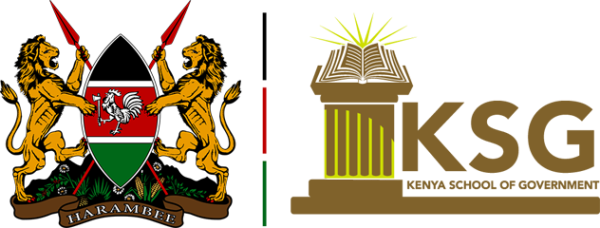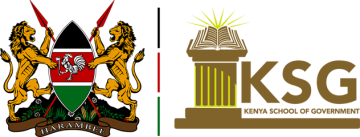Consultancy Portfolio
August 4, 2023 2024-02-28 13:49Consultancy Portfolio
Analysis of Consultancy Portfolio
The Centre has offered and continue to offer variety of consultancy services in order to contribute towards institutional and public sector transformation. Some of the consultancy portfolio that the School has offered are as shown table below:
| S/No. | Categories | Details |
|---|---|---|
| 1 | Executive recruitment | i. The School provides executive recruitment services to public service institutions. ii. The School is guided by existing legal and regulatory frameworks on recruitment and selection. iii. The School has established a Competency Assessment Centre which focuses on executive recruitment and selection among other broad areas. iv. The Centre seeks to apply current trends in assessing the suitability of candidates beyond the traditional method of conducting interviews v. The comprehensive portfolio of executive recruitment services provide our clients and candidates with a one-stop shop ranging from: a. Development of job indents b. Advertising c. Receiving of applications d. Longlisting, shortlisting e. Conducting of oral interviews and f. Conducting psychometric and emotional intelligence assessment g. Recommendation of suitable candidates for selection and h. Induction of newly recruited officers |
| 2 | Organizational Re-engineering and Culture change | i. The need for public sector institutions to innovate and adapt to the dynamic environment has compelled the School to develop and roll out programs that encourage the search for new approaches to work. ii. Development of new approaches and programs to work enhances capacity to cope with new and emerging constrains in society and realize better results. iii. These programs include training in Change Management, Business Process Re-engineering, Business innovation and continuity planning and productivity improvement which have made a notable difference. |
| 3 | Competency Based Assessment | i. The success of the Public Service depends on its ability to optimize on its employees’ capabilities and performance to ensure efficiency and effectiveness in the delivery of public services as envisioned in the Kenya Vision 2030. ii. The Public Service has an obligation to identify, attract, develop and retain highly skilled human resource by creating robust policies and systems. iii. To entrench a culture of competency based performance and capacity building for improved service delivery, the School has undertaken consultancies in skills and competency gaps analysis, training needs assessments, and preparation of staff development plans. |
| 4 | Development of Strategic Plans and Development Plans | i. Strategic Plans and other development plans are the Government’s main tools for establishing development effectiveness and aligning national development priorities, expected outcomes and results with the budget. ii. They are the basis for identifying deliverables under the Performance Contracting mechanism and for individual Annual Performance Appraisal. iii. The School has adopted guidelines for preparation of Strategic Plans as provided by the National Treasury and Planning. iv. These guidelines enable the School to ensure a standardized approach to preparation of strategic plans and alignment of the public institutions’ strategic plans to the national development priorities. v. The School has in the past ten years supported the development and/or review of Strategic Plans for National and County Governments (County Integrated Development Plans- CIDPs). |
| 5 | Performance Management | i. The quality of public services and achievement of targets is not measured by the number of hours put in to the work by public officials but by the targets achieved within the hours put in. ii. The School promotes this through results based management programs such as Productivity Measurement and Improvement as well as Performance Evaluation to ensure value driven public officers for best results in the public service. iii. The School in collaboration with Salaries and Remuneration Commission (SRC) and The National Productivity and Competiveness Center have developed a five day program for Productivity Improvement and Measurement. iv. The program has so far been piloted among Commercial State Corporation with the aim of enabling organizations measure organizational productivity so as to ensure optimal application of resources for optimal outcomes. v. The School has also provided technical assistance in development of Performance Management Systems (PMS) for various public service institutions. |
| 6 | Board Induction and Evaluation | i. Public sector Boards are entrusted with governance responsibility in State Corporations and other semi-autonomous government agencies. ii. Boards should therefore be led by competent, diverse and qualified members capable of exercising objective and independent judgement. iii. To this end the School conducts board inductions to ensure that skills and knowledge of board members are continually developed to enhance effectiveness. iv. The School also undertakes board evaluations to promote accountability to stakeholders. |
| 7 | Design, Development and Implementation of E-learning Programs | i. The School has assisted in setting up eLearning Centres in neighbouring countries in the Horn of Africa. These include video conference centre, computer lab, eLearning platform, e-library and institutional websites. ii. The video conference facilities have provided affordable access to subject matter experts from across the globe who would facilitate in programs that are offered at the School. iii. These facilities have also made it possible for blended programs to be offered to the public service from countries that are members of Global Development Learning Network (GDLN) and Africa Association of Development Learning Centres (AADLC). |
| 8 | Job evaluation and development of job descriptions | i. The Constitution 2010 envisions equitable pay and benefits for public service whilst ensuring affordable and sustainable wage bill. ii. The School in collaboration with the SRC jointly rolled out a five day Job Evaluation Training for the third cycle (2021/22-2024/25). iii. The primary aim of the training is to enhance understanding and appreciation across the public service on the importance of objective grading for an equitable and consistent public service remuneration. iv. This will promote equal pay for work of equal value in the public service in the long run. v. The School has worked closely with the trained job analysts to develop and/or review job descriptions for various public sector organizations. |
| 9 | Collective Bargaining | i. The Constitution of Kenya 2010 called for a paradigm shift on how the public service should approach matters relating to Collective bargaining negotiations and agreements. ii. The School in collaboration with the Ministry of Labor and Social Services, SRC, Public Service Commission and Employment and Labor Relations Court developed a five day program on Collective Bargaining for Public Service. iii. This has contributed to a stable and productive work environment for both employers and workers. iv. The School has so far trained management teams from 24 Universities and 28 Counties. |


